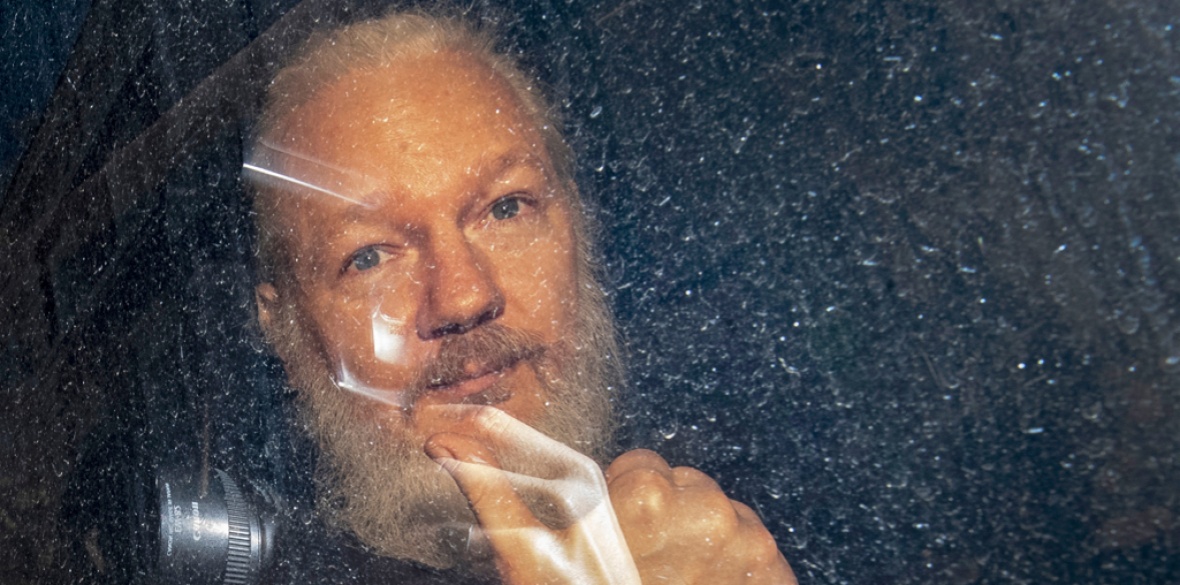This is the last article you can read this month
You can read more article this month
You can read more articles this month
Sorry your limit is up for this month
Reset on:
Please help support the Morning Star by subscribing here
THE decision to refuse the extradition of Julian Assange by magistrate Vanessa Baraitser is a triumph for British justice: within the tradition of elites getting themselves out of sticky situations.
Julian Assange was saved from extradition yesterday (barring the outcome of an appeal), but only on the back of rejecting 95 per cent of the case for his defence.
Judge Baraitser’s verdict leaves the British government free to extradite anyone else that the US cares to finger for reporting war crimes, human rights abuses, corporate corruption and CIA surveillance.
She even implied that the US has the right to spy on an embassy on British soil.
The only point keeping Assange from extradition in the eyes of the British courts is the US’s inability to prevent Assange from suicide in their prisons, a strange point given that most of his mental and physical deterioration is due to treatment endured while detained at Her Majesty’s and the Crown Prosecution Service’s pleasure.
Nils Melzer, the UN Special Rapporteur on Torture, condemned Assange’s exposure to “progressively severe forms of cruel, inhuman or degrading treatment or punishment, the cumulative effect of which can only be described as psychological torture.”
Baraitser herself refused to intervene to ensure he had full access to his lawyers, refused to allow his temporary release on health grounds, given that Assange has a lung condition and Covid-19 is running through Belmarsh prison.
Humanity played no part in Baraitser’s decision, it is a judgment guided by the British Establishment’s need to get out of a pickle.
Britain has a legal system so intricate, so flexible that in the case of the Tolpuddle Martyrs, the Pentonville Five, and now in the case of Assange it finds a loophole to head off mass national, and in Assange’s case, international condemnation, while leaving the door wide open for similar prosecutions in the future.
The US request to extradite Assange has eventually caused Britain two problems.
One is political embarrassment. How can the West lecture other countries about freedom of the press and human rights when it has incarcerated and tortured the most famous journalist of the century?
In November last year, the president of Azerbaijan, when told by a BBC journalist that his country had cracked down on journalists and put critics in jail, challenged her “moral right” to talk about such things given Britain’s role in jailing and torturing Assange.
Another problem arises with regard to Britain’s trading and diplomatic position following Brexit and the danger of putting all its eggs in the US basket.
Joe Biden’s election could put Britain “at the back of the queue” for a treaty anyway made with a capricious partner, and the terms of which would be controversial domestically.
The British Establishment should be looking around for allies in what is increasingly a multipolar world as the “American century” goes the way of all empires.
Baraitser, Johnson, Trump and Biden will, in the words of Christopher Caudwell, “grow more and more ludicrous and petty as they recede down the tide of time.”
In contrast, Assange’s stature will only grow. His contribution has been enormous especially to the peace movement and anti-imperialist struggles.
He willingly and knowingly entered the jaws of the military-internet-industrial complex to expose the lies that breed war, corruption and torture in order to generate the forces for peace and justice.











